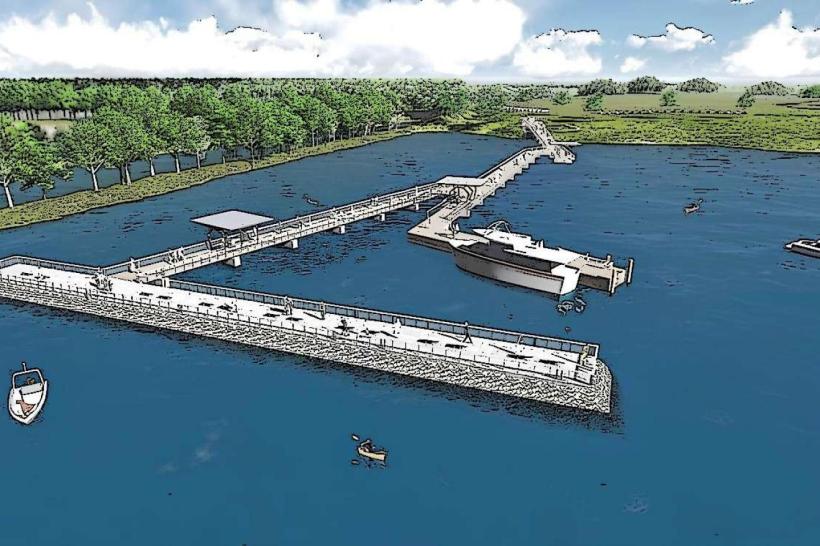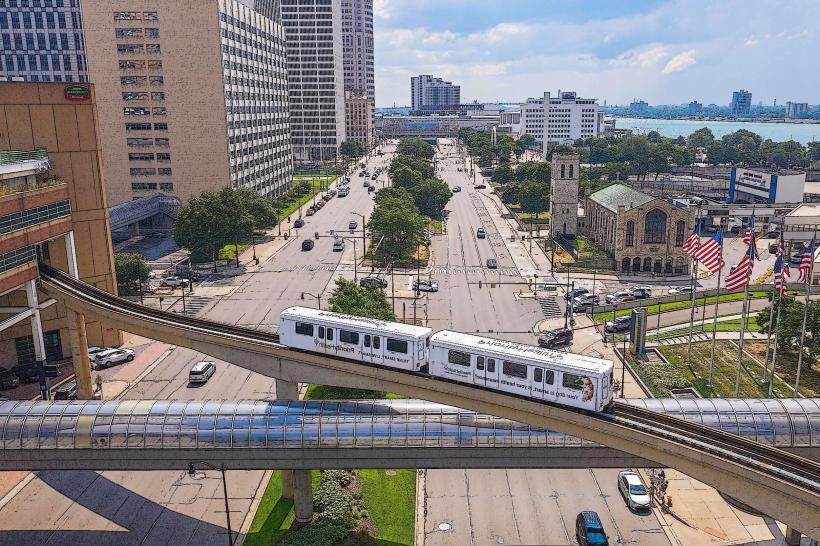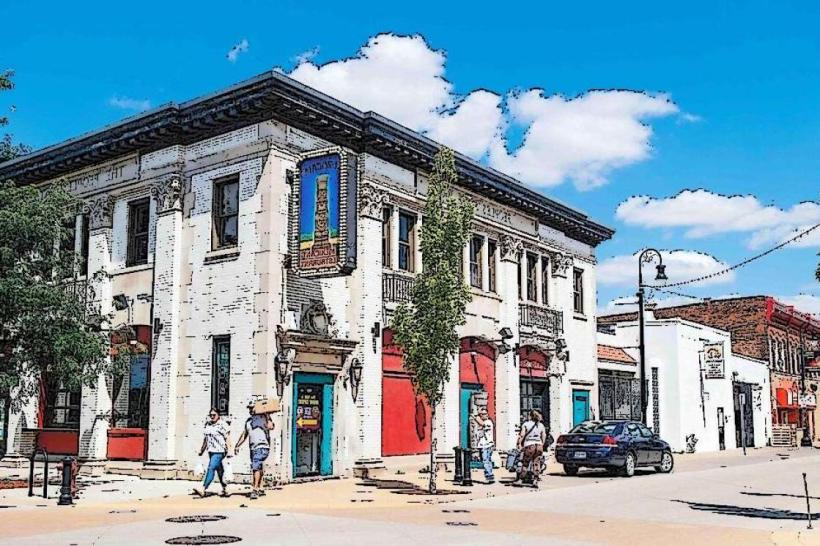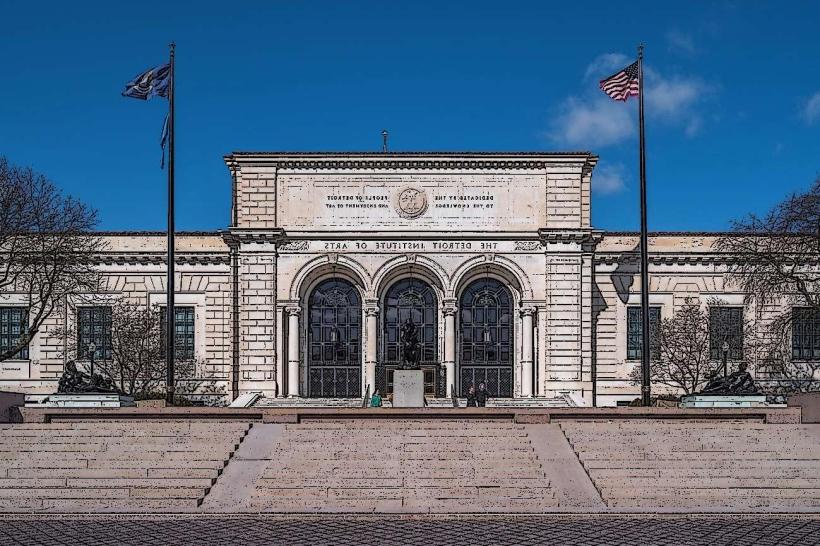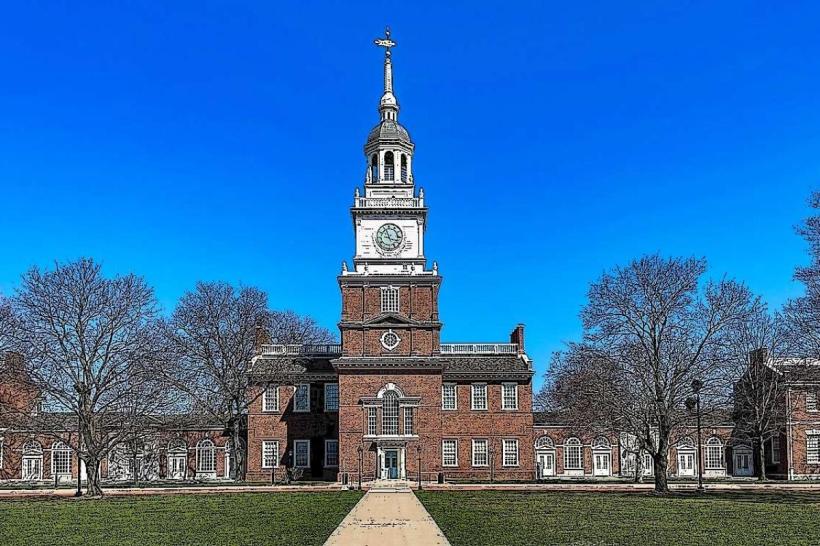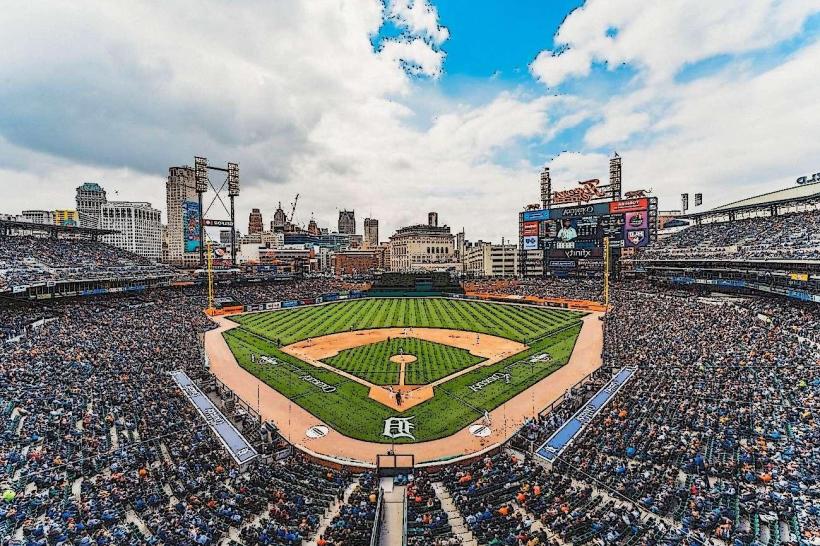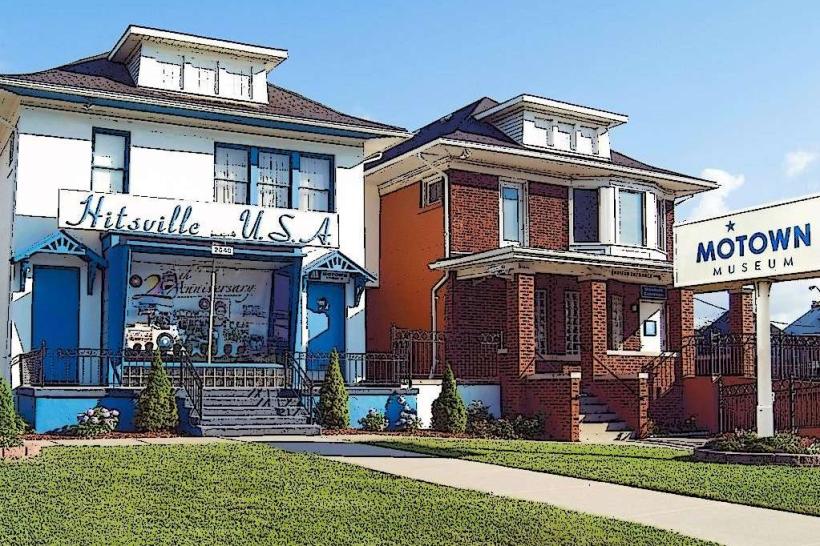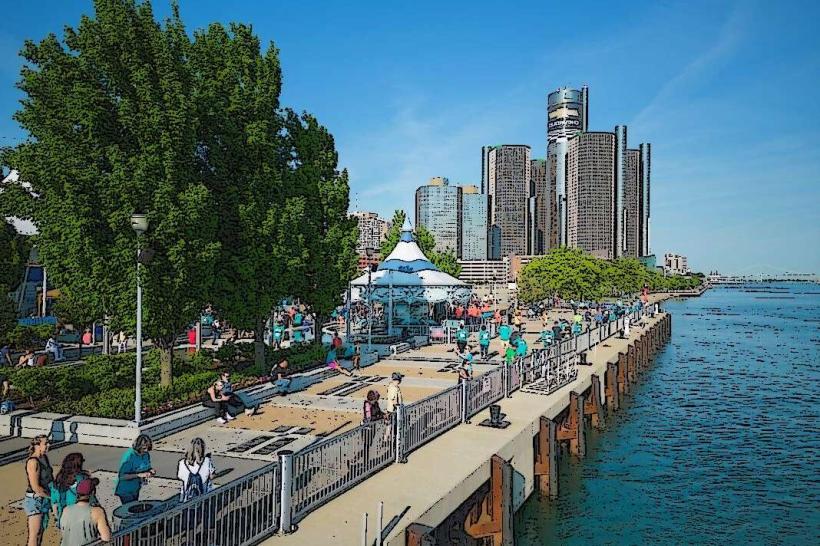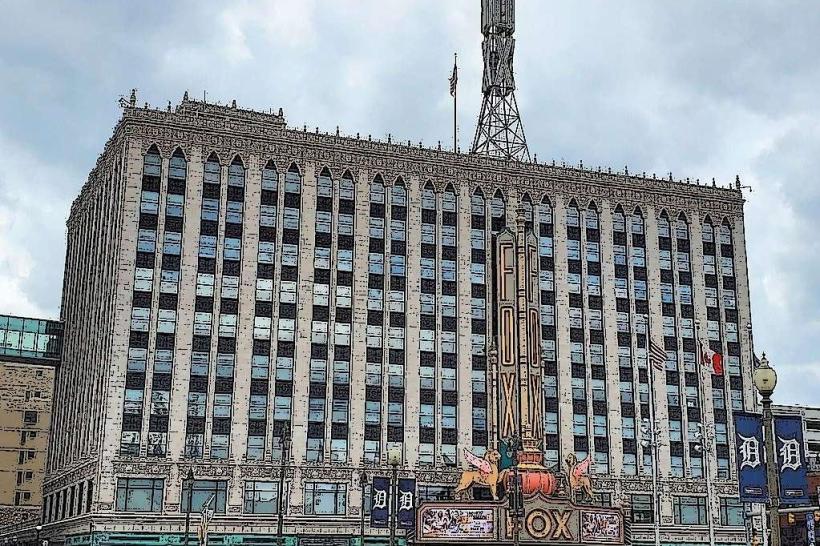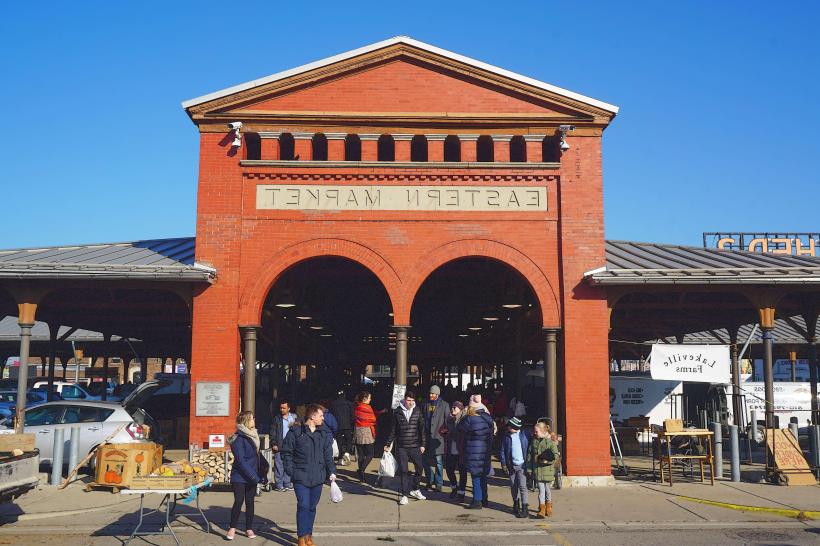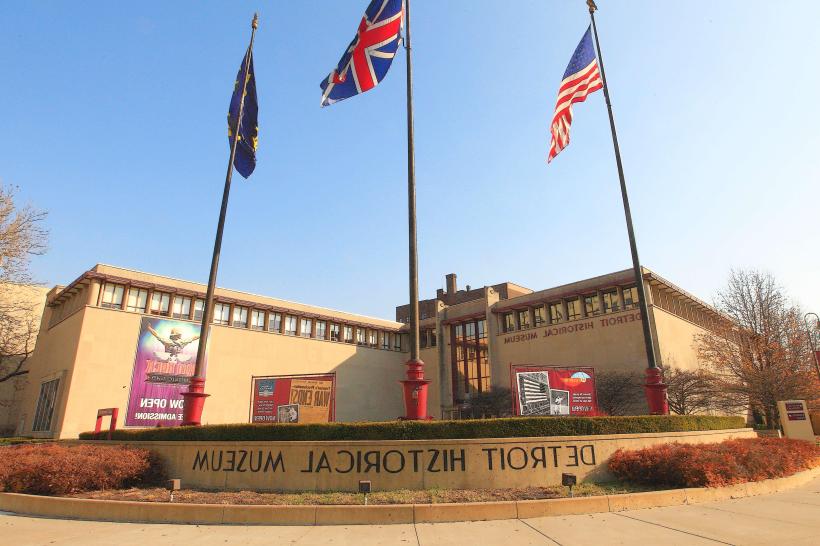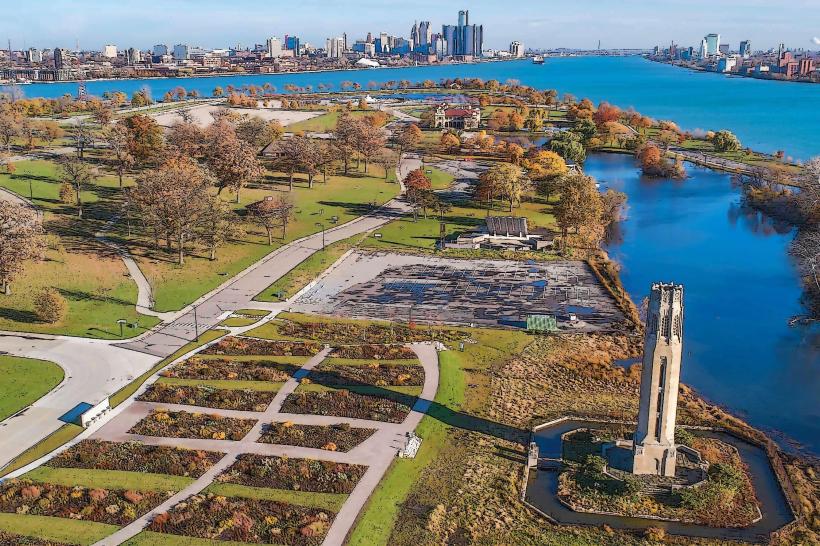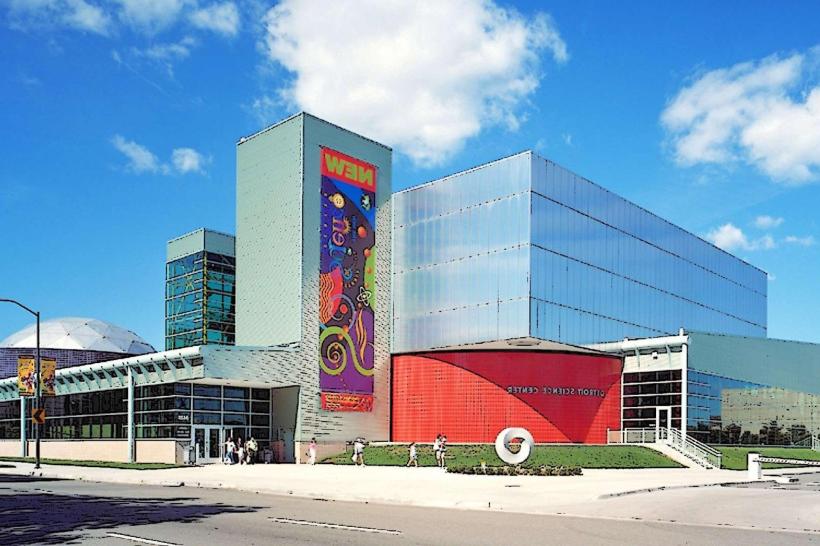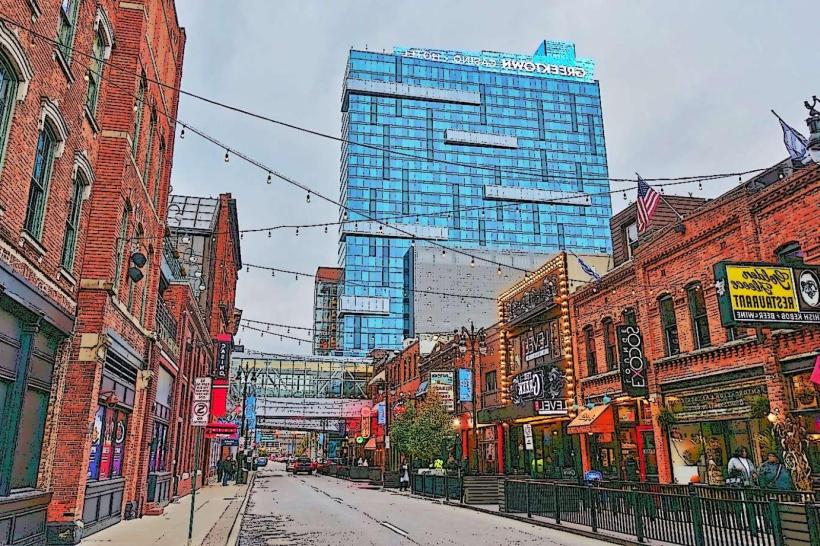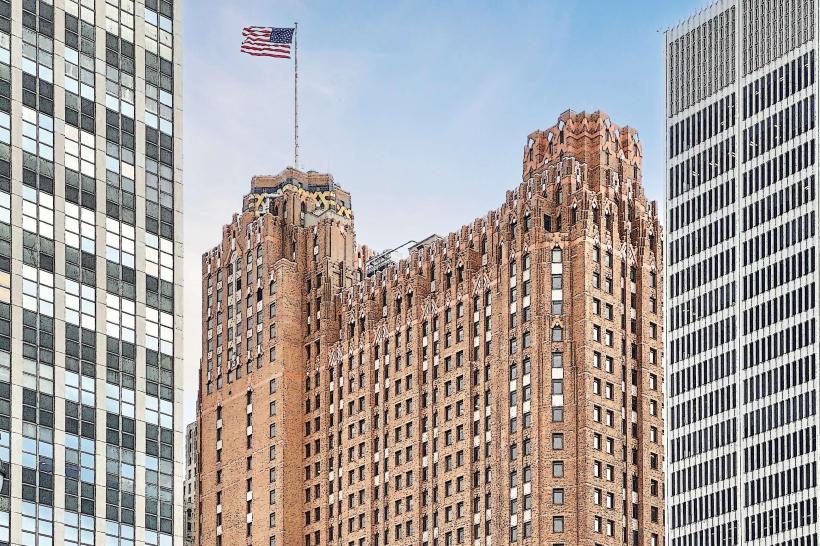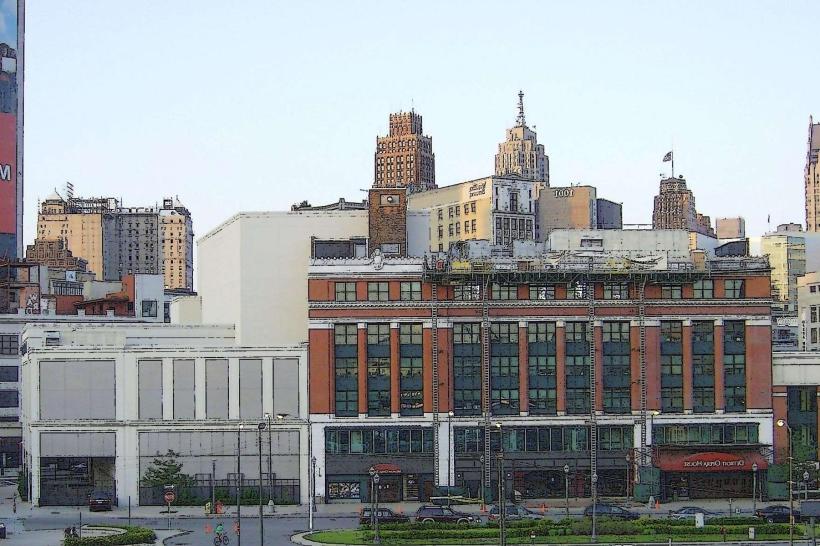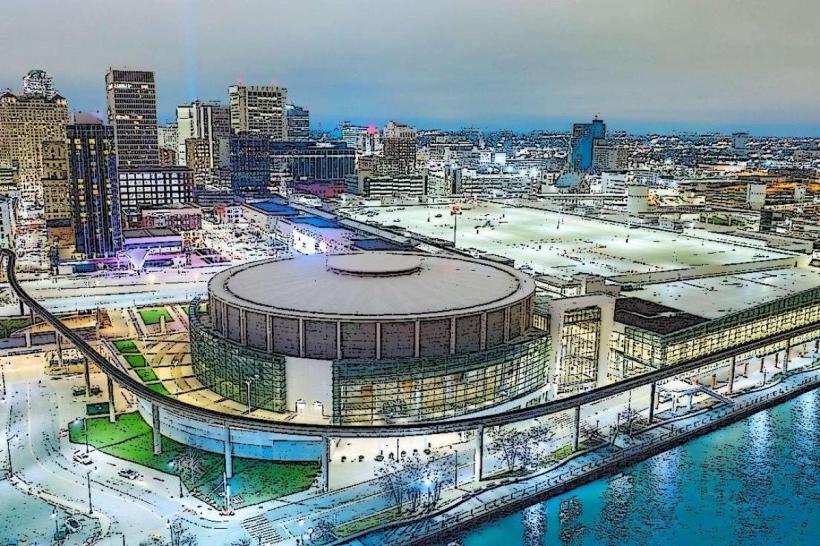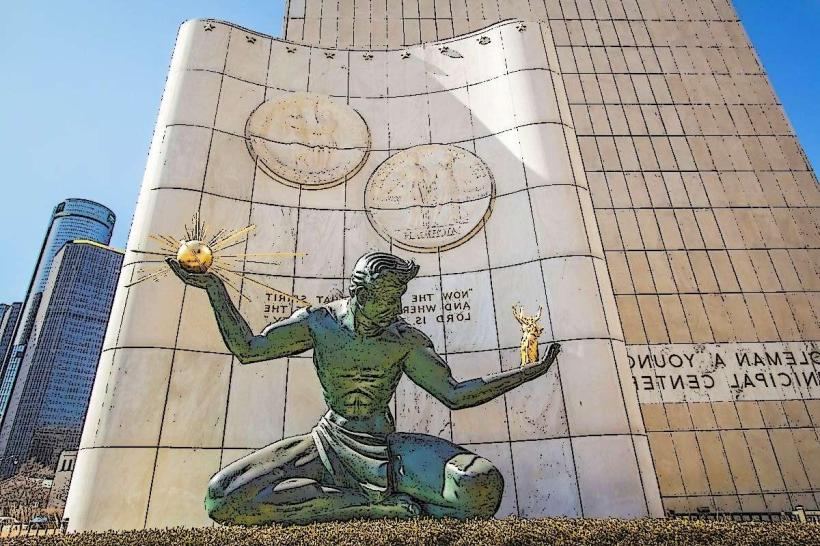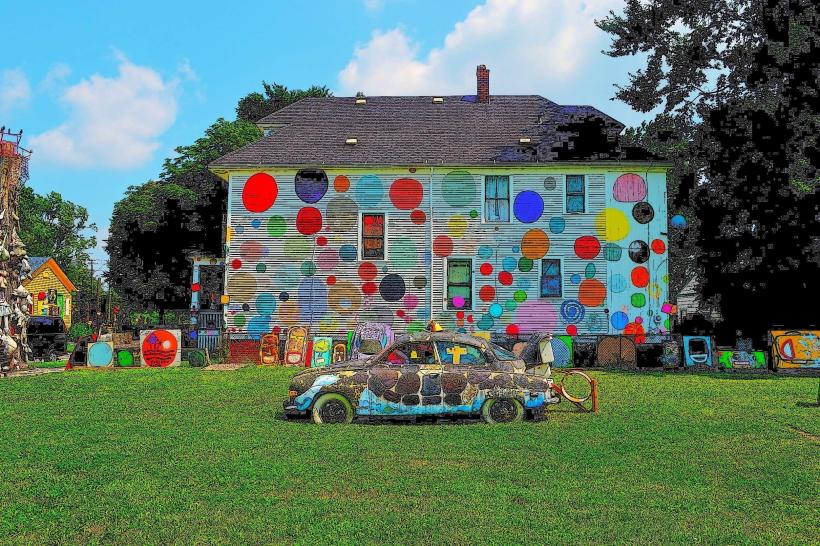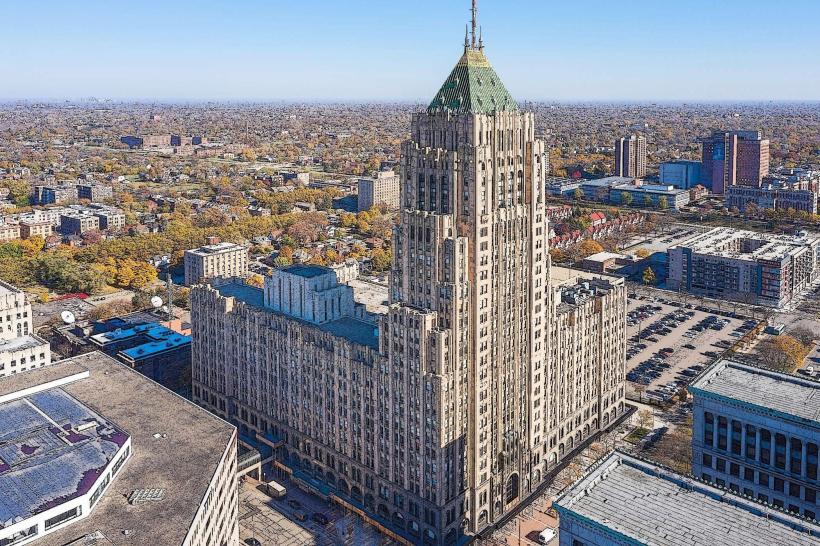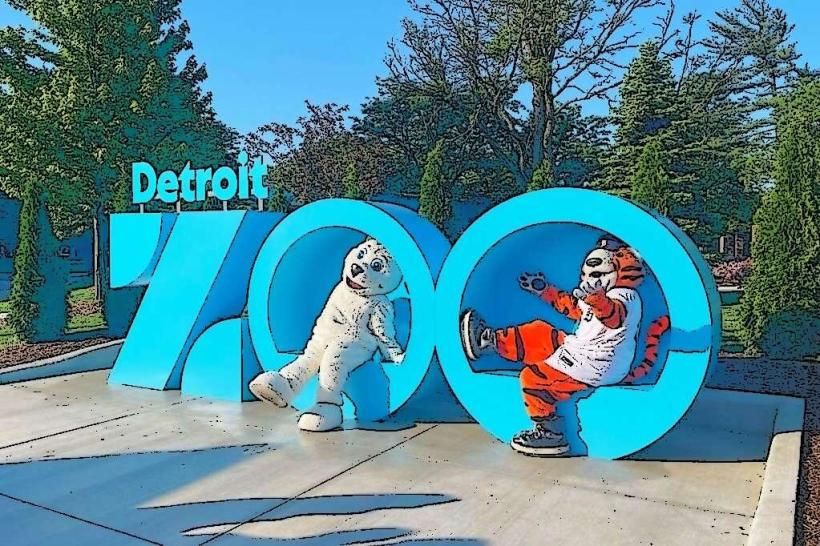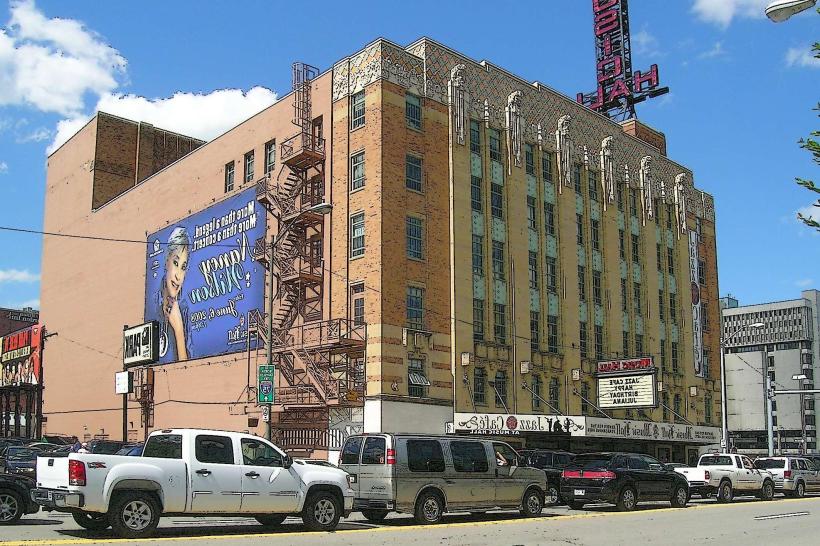Information
Landmark: Campus Martius ParkCity: Detroit
Country: USA Michigan
Continent: North America
Campus Martius Park, Detroit, USA Michigan, North America
Campus Martius Park is a public urban park located in the heart of downtown Detroit, Michigan. It serves as a central gathering space and a focal point for civic activity.
Visual Characteristics
The park features a large central fountain, a circular lawn area, and paved walkways. It is bordered by historic buildings, including the Guardian Building and the Compuware Building. The park's design incorporates hardscaping with granite and brick, interspersed with landscaped areas containing trees and seasonal plantings. A prominent feature is the Soldiers' and Sailors' Monument at the park's southern edge.
Location & Access Logistics
Campus Martius Park is situated at the intersection of Woodward Avenue and Monroe Avenue in downtown Detroit. It is approximately 0.5km (0.3 miles) from the Detroit Riverfront. Parking is available in several nearby parking garages, including the One Campus Martius Garage and the Financial District Garage. Public transport options include various Detroit Department of Transportation (DDOT) bus routes that stop along Woodward Avenue and nearby streets. The QLine streetcar also has a stop at Campus Martius.
Historical & Ecological Origin
The site of Campus Martius Park was historically the central point from which all land surveys in Michigan originated. The area was originally a public square established in the early 19th century. The current park design was completed in 2004, transforming a previously underutilized space into a functional public area.
Key Highlights & Activities
Activities include ice skating on the Rink at Campus Martius during winter months. The central fountain is operational during warmer seasons and is a popular spot for relaxation. The park hosts numerous public events, concerts, and festivals throughout the year. Visitors can utilize the open lawn for seating and informal gatherings.
Infrastructure & Amenities
Restrooms are available within adjacent buildings accessible from the park. Shade is provided by mature trees. Cell phone signal (4G/5G) is generally strong throughout the park. Food vendors and nearby restaurants offer dining options.
Best Time to Visit
For photography, early morning or late afternoon light provides optimal illumination of the park and surrounding architecture. The park is accessible year-round, with winter offering the ice rink and summer providing a green space. Specific event schedules should be checked for optimal timing.
Facts & Legends
The name "Campus Martius" is Latin for "Field of Mars," referencing the Roman Campus Martius, a public space used for military and public assemblies. The park's central fountain is known as the "Michigan Soldiers' and Sailors' Monument Fountain."
Nearby Landmarks
- 0.2km North: Guardian Building
- 0.3km West: Campus Martius Park Ice Rink (seasonal)
- 0.4km Southeast: Detroit Institute of Arts (requires travel)
- 0.5km South: Detroit Riverfront
- 0.6km Southwest: COBO Center

